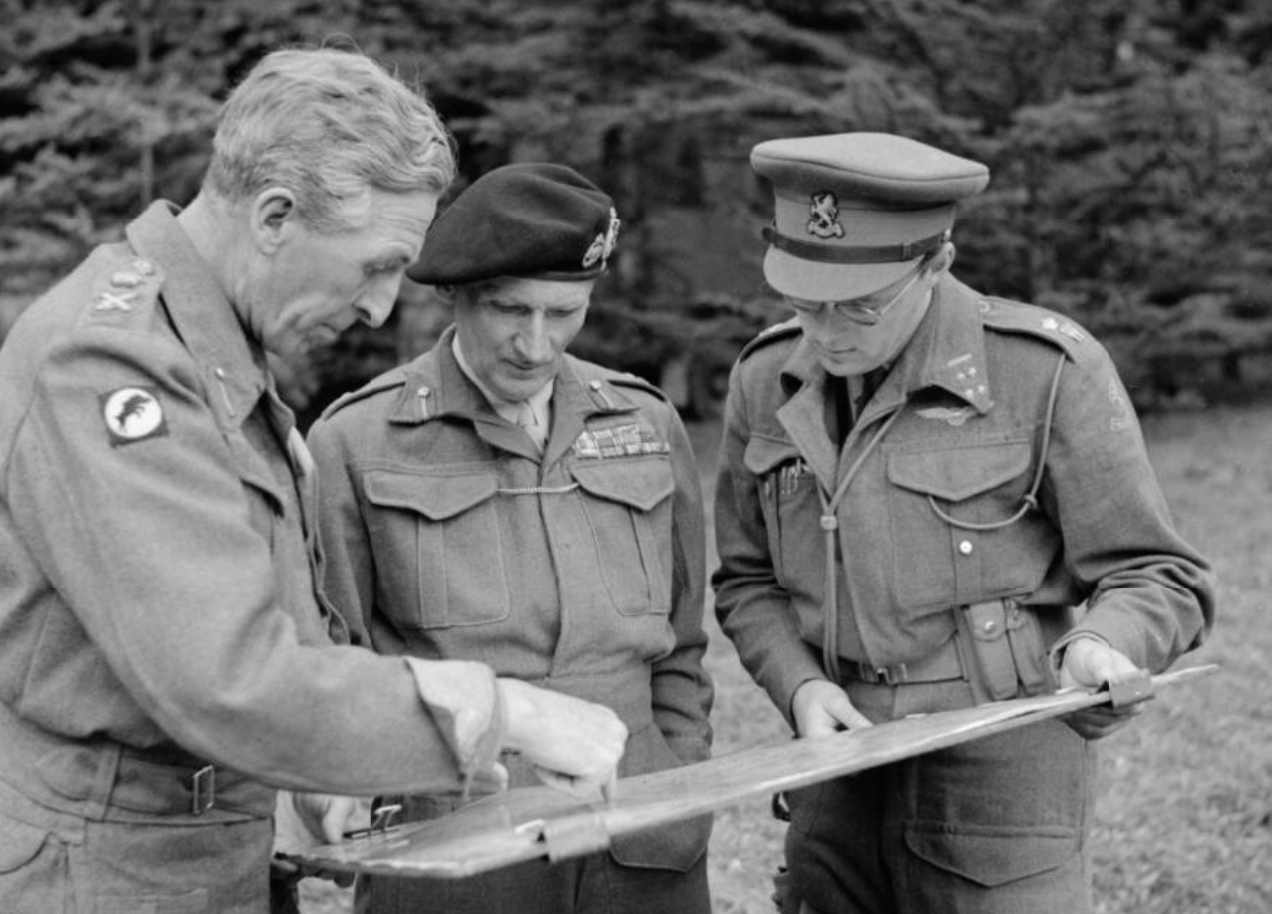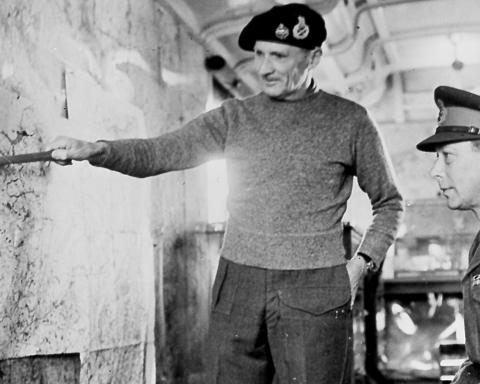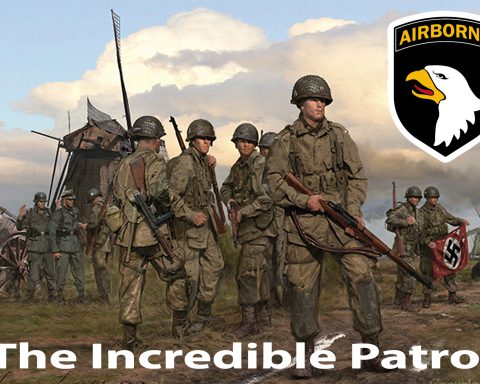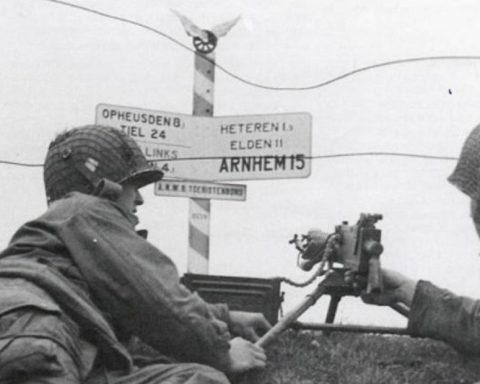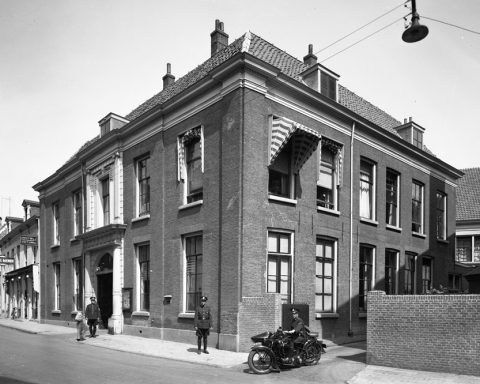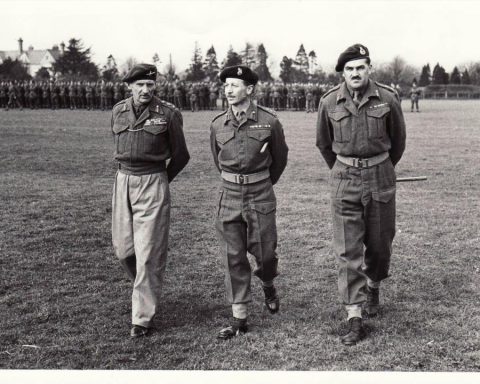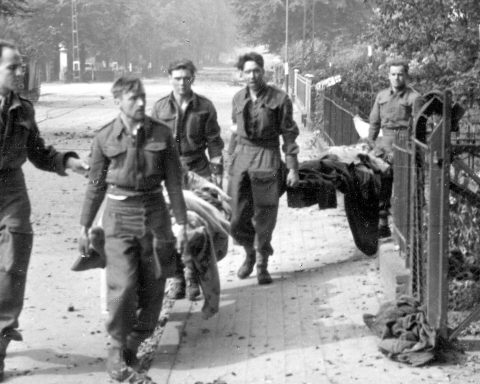Nowadays, the image of Montgomery has been adjusted considerably downwards, but in early September 1944, Field Marshal Bernard Montgomery was at the height of his fame.
Montgomery was the hero of El Alamein. He was the British commander who had driven the Germans out of Africa, and after D-Day he was the one to defeat the toughest German resistance in Normandy. In August 1944, Montgomery had chased the Germans back to the Dutch border.
The defeat of Operation Market Garden was a blot on the then untouchable face of the British war hero. But for many years it has been said from the British side in particular that Market Garden was worth the risk. If Market Garden had succeeded, the war would have ended by Christmas 1944.
Over the years, however, more has become known about the creation of Operation Market Garden, and most historians are now convinced that the plan had only a small chance of success. To quote British military historian Antony Beevor, “Market Garden was just a really bad idea.”
Beevor: “Every other problem originated there. Montgomery had not shown any interest in the practical problems surrounding airborne operations. He had not bothered to study the sometimes disastrous experiences of North Africa, Sicily and the dropping in Normandy.”
Montgomery’s intelligence chief, Brigadier General Bill Williams, also pointed out that “Arnhem depended on an investigation of the property, which Monty had not done when deciding on the operation.”
Beevor: “In fact, Montgomery stubbornly refused to listen to the Dutch commander-in-chief Prince Bernard, who had warned him of the impossibility of traveling with armored vehicles on the Dutch dikes, the only way through the low-lying polder land.”
Scapegoat
The Allied commander-in-chief General Eisenhower preferred to advance along a broad front, with all three Allied commanders (Bradley, Patton and Montgomery) steadily advancing their part of the front. Montgomery convinced Eisenhower that he could break through the German lines with one strong attack.
After the war, Eisenhower has been quite criticized for abandoning his strategy to advance along a broad front. But on the German side, people were amazed at the strategy of Eisenhower.
A staff officer from the German supreme command wrote that it remained a mystery why the Allies had not concentrated all of their troops on one point to force a breakthrough through the German defense.
After being granted the green light for Operation Market Garden by Allied Commander-in-Chief General Eisenhower, Montgomery left the work of the plan to Generals Dempsey and Browning. Dempsy was responsible for the ground army. Browning was responsible for the elaboration of the airborne operation at Eindhoven, Grave, Nijmegen and Arnhem.
In the meantime, General Boy Browning, in particular, has been criticized for the decisions made when inventing Market Garden. But after the defeat at Arnhem, Browning designated the Polish paratroopers of General Sosabowski as a scapegoat. The Poles would not have fought well at Arnhem. The Poles have now been completely rehabilitated.
90 percent successful
After Market Garden, Montgomery has always tried to shrug off responsibility for the Allied defeat. Montgomery held Eisenhower partly responsible for the costly failure at Arnhem.
According to Montgomery, Eisenhower had not supplied him with the supplies and equipment needed to make Market Garden a success. There is some truth to that criticism, because Eisenhower made more promises during the planning phase of Market Garden than was fulfilled. The fact was that Bradley and Patton got into trouble because of the reduced supply.
Antony Beevor: “Until the last day of his life Montgomery never wanted to admit that he had been responsible for something going wrong.”
In fact, even after Operation Market Garden failed, Montgomery maintained that the operation was 90 percent successful. After all, the Allies managed to conquer 90 percent of the route from the Germans.
Prince Bernhard, when he heard Montgomery’s optimistic verdict on the battle, would have remarked, “My country cannot afford another success from Montgomery …”
Useless
It was clear during the war that the American general George Patton and Montgomery didn’t get along very well. The two could not loathed each other. It is less known that even the phlegmatic and diplomatic Eisenhower was at one point completely finished with the haughty Montgomery.
Montgomery tended to look down on other military personnel. He felt that he was always right and could hardly appreciate other Allied commanders.
Montgomery once wrote of Eisenhower: “As commander of the ground operations, Eisenhower is useless, there can be no discussion about it. He is complete and utterly useless. He knows nothing about warfare.”
During the Battle of the Bulge in December 1944, Eisenhower was completely done with it. He wrote a letter to the joint chiefs of staff stating that he would resign unless Montgomery was replaced. It was only after Montgomery made his apologies that things were appeased.
In 1958 Montgomery wrote his memoir, in which he did not let Eisenhower loose. Eisenhower, then President of the United States, then cut off contact with Montgomery. To Lord Hastings, staff officer of Winston Churchill, Eisenhower wrote:
“I can’t forget how he was always ready to belittle employees at critical times when everyone’s cooperation was indispensable. Therefore, I personally don’t think historians will be tempted to glorify him on these grounds alone.”
Prophetic words. Bernard Montgomery was undoubtedly a good military commander, but now it is mainly the negative qualities of Montgomery that receive the most attention.

